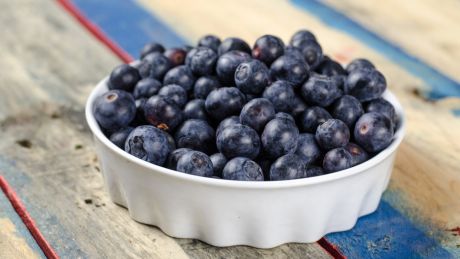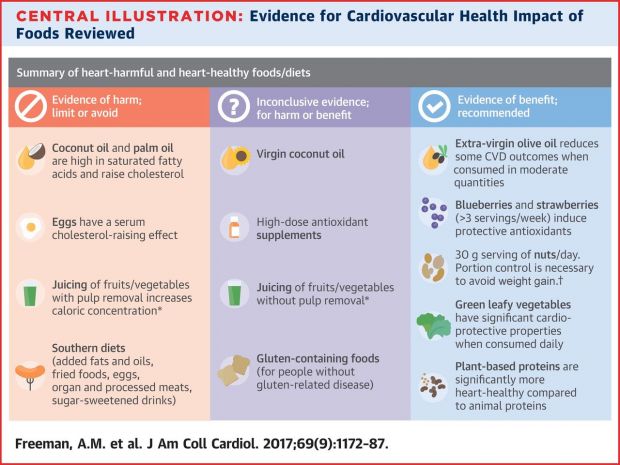The Busy Man’s Guide To Foods For A Healthy Heart
US surgeons have analysed diets that are supposed to keep your heart healthy. We translate their findings into one word

It’s not easy to know which foods are good and bad for your heart, with conflicting reports and new fads coming at you from all angles.
Fortunately, there are always well-informed (and well-qualified) people out there trying to make things clearer. This week a review of evidence was published in the Journal Of The American College Of Cardiology that sought to give some straightforward rulings on foods and diets that are commonly touted as being good for your heart.
But Coach readers are busy, important people, so we’re cutting down the advice even further with a one-word ruling: yeah (meaning there’s evidence of benefits, it’s recommended), nah (there’s evidence it causes harm, best avoided) or dunno (there’s inconclusive evidence either way, so… dunno). Strap yourselves in, here we go.
Should You Eat The Following Foods To Keep Your Heart Healthy?
- Coconut oil: Nah
- Olive oil: Yeah
- Blueberries and strawberries (for antioxidants): Yeah
- Antioxidant supplements: Dunno
- Eggs: Nah
- 30g nuts a day: Yeah
- Loads of nuts: Nah
- Juicing with the pulp: Dunno
- Juicing without the pulp: Nah
- Gluten: Dunno (unless you’re coeliac, in which case, nah)
- Green leafy veg: Yeah
- Plant-based protein: Yeah
Useful, right? But nothing’s ever this easy. While we think this is solid advice worth taking on board, the review isn’t a systematic one, and the methods by which the researchers chose the studies to include aren’t described so NHS Choices suggests it should be viewed mainly as an “opinion piece following the authors’ review of the evidence”.
That said, it’s still a helpful highlighting of several foods that often come up when heart health is discussed. Best of all, the researchers even made a handy infographic for the foods they looked at, which we’ve got for you right here. Below that, we’ve included more details on each type of food or diet the researchers looked at… in case you’re not that busy today.

Image via Journal of the American College of Cardiology
Vegetable Oils
It all depends on which vegetable oil you opt for, according to this review. Solid fats, like coconut and palm oil, were seen to have a negative effect on the heart as they were high in saturated fats and raise cholesterol.
Get the Coach Newsletter
Sign up for workout ideas, training advice, reviews of the latest gear and more.
Liquid vegetable oils did manage to make the heart healthy column, however, especially olive oil, which can reduce cardiovascular risk.
Eggs
Bad news for eggs, as the review of research suggested it was “prudent” for people to limit their dietary cholesterol (found in eggs and other foods) intake because it’s linked with a rise in blood cholesterol.
Antioxidants
Eating plenty of antioxidant-rich fruit and veg should have a beneficial effect on heart health, but opting for supplements was not found to produce the same benefits. Over three servings a week of antioxidant-rich blueberries or strawberries will set you right.
Nuts
A 30g portion of nuts daily can be an excellent part of a heart-healthy diet, but the high amount of calories in nuts means it’s important not to exceed the recommended dose.
Leafy Green Vegetables
No surprises here. Eating leafy green veg has a significant beneficial effect on the heart (and just about every other part of the body). If in doubt, “eat more leafy green veg” is a pretty good rule to live your life by, to be honest.
Juicing
Keep that pulp in the juice, people, otherwise it ends up in the “bad for your heart” column, mainly due to increasing your consumption of calories and sugar. With pulp, it makes it into the inconclusive column.
Plant-Based Diet
More meat-free days could well benefit the heart, as making this choice was found to improve cardiovascular disease risk factors. Plant-based proteins were found to be far better for the ticker than animal-based protein.
RECOMMENDED: How To Get Started With A Plant-Based Diet
Gluten-Free Diet
As you might expect, going gluten-free was found to be very beneficial in people with gluten-related diseases. If you don’t have one of those, there’s no benefit.

Nick Harris-Fry is a journalist who has been covering health and fitness since 2015. Nick is an avid runner, covering 70-110km a week, which gives him ample opportunity to test a wide range of running shoes and running gear. He is also the chief tester for fitness trackers and running watches, treadmills and exercise bikes, and workout headphones.
